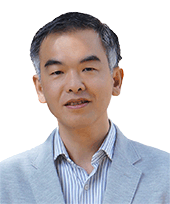Position/Status
Professor of Applied Linguistics and Languages Education
E-mail Address
yl258@cam.ac.uk
Phone
+44 (0)1223 767638
Qualifications
- PhD in Second Language Education (University of Cambridge)
- MPhil Research in Second Language Education (University of Cambridge)
- MA Linguistics and Applied Linguistics (Guangdong University of Foreign Studies, China)
- BA English Linguistics and Translation Studies (Guangdong University of Foreign Studies, China)
Professional Bodies/Associations
- Home/Heritage/Community Languages Advisory Group (British Council and Association for Language Learning)
- Convener of Cambridge Research in Community Language Education Network
- Co-Director of the Centre for the Study of Global Human Movement
Profile
Yongcan's scholarship seeks to deepen the debate about multilingualism and education in migration contexts. He integrates three related fields, i.e. 'heritage language maintenance', 'language across the curriculum', and 'foreign language education', into a research programme aimed at identifying solutions to improve educational achievement, social integration and emotional wellbeing of migrant children and youth.
Yongcan's recent work examines the role of language(s) in schooling and assessment, and the requisite knowledge base for teaching, in contexts of diversity, mobility and geopolitical uncertainty. This includes AHRC MEITS project and a series of linked projects funded by the Bell Foundation which explore EAL learners' language development, social integration and educational achievement. He is also co-author of the 'Principles of EAL Assessment' and the 'EAL Assessment Framework for Schools'. This work was recognised with a British Council ELTons award for innovation. In order to better understand the contributions of community/heritage languages to the development of plurilingual individuals and multilingual societies, he founded Cambridge Research in Community Language Education Network (CRiCLE-Net) and the Language, Heritage, Migration Initiative.
Academic Area/Links
- Multilingualism and Language Education Group
- Cambridge Language Sciences
- Centre for the Study of Global Human Movement
Research Topics and Interests
Home/heritage/community/refugee language education
Bilingual and multilingual education
Language of schooling and the knowledge base of teaching in migration contexts
Sociocultural theory and instructional designs of ZPD for second language development
Language teacher cognition and teacher learning in (digital) communities of practice
Development, validation and evaluation of language teacher knowledge/competence/assessment frameworks
International Chinese language education
Current Projects
- EAL Assessment Framework for Schools (primary and secondary)
- Multilingualism: Empowering Individuals, Transforming Societies (AHRC)
- Language Development, Social Integration and Educational Achievement of EAL Children (Bell Foundation)
- The Learning Passport (Cambridge/UNICEF/Microsoft)
- We Are Multilingual (WAM)
Course Involvement
- Education Tripos
- MPhil/MEd Research in Second Language Education
- MPhil/MEd Research Methods Strand
- PhD/EdD Supervision
- Secondary PGCE
Selected Publications
Zhou, Y., & Liu, Y. (2022). Theorising the dynamics of heritage language identity development: A narrative inquiry of the life histories of three Chinese heritage speakers. Language and Education. DOI:10.1080/09500782.2022.2068351
Leung, C., Evans, M., & Liu. Y. (2020). English as an additional language assessment framework: Filling a void in policy and provision in school education in England. Language Assessment Quarterly, 18(3), 296-315. DOI: 10.1080/15434303.2020.1869745
Liu, Y. (2019). Situated teacher learning as externalising and mobilising teachers' tacit knowledge through talk in a language teacher professional community. Research Papers in Education, 34(3), 330-351. DOI:10.1080/02671522.2018.1452956
Fisher, L., Evans, M., Forbes, K., Gayton, A., & Liu, Y. (2019). Participative multilingual identity construction in the languages classroom: A multi-theoretical conceptualisation. International Journal of Multilingualism, 17(4), 448-466. DOI: 10.1080/14790718.2018.1524896
Evans, M., & Liu, Y. (2018). The unfamiliar and the indeterminate: Language, identity and social integration in the school experience of newly-arrived migrant children in England. Journal of Language, Identity and Education, 17(3), 152-167. DOI: 10.1080/15348458.2018.1433043
Liu, Y., Fisher, L., Forbes, K., & Evans, M. (2017). The knowledge base of teaching in linguistically diverse contexts: 10 grounded principles of multilingual classroom pedagogy for EAL. Language and Intercultural Communication, 17(4), 378-395. DOI:10.1080/14708477.2017.1368136
Duff, P., Liu, Y., & Li, D. (2017). Chinese heritage language learning: Negotiating identities, ideologies and institutionalisation. In O. Kagan, M. Carreira & C. Chik (Eds.), Routledge Handbook of Heritage Language Education (pp. 409-422). London, New York: Routledge.
Liu, Y., & Evans, M. (2016). Multilingualism as legitimate shared repertoires in school communities of practice: Students' and teachers' discursive construction of languages in two schools in England. Cambridge Journal of Education, 46(4), 553-568.
Liu, Y. (2016). The emotional geographies of language teaching. Teacher Development, 20(4), 482-497. DOI:10.1080/13664530.2016.1161660
Evans, M., Schneider, C., Arnot, M., Fisher, L., Forbes, K., Liu, Y. & Welply, O. (2020). Language development, social integration and academic achievement of EAL students. Cambridge: Cambridge University Press.

